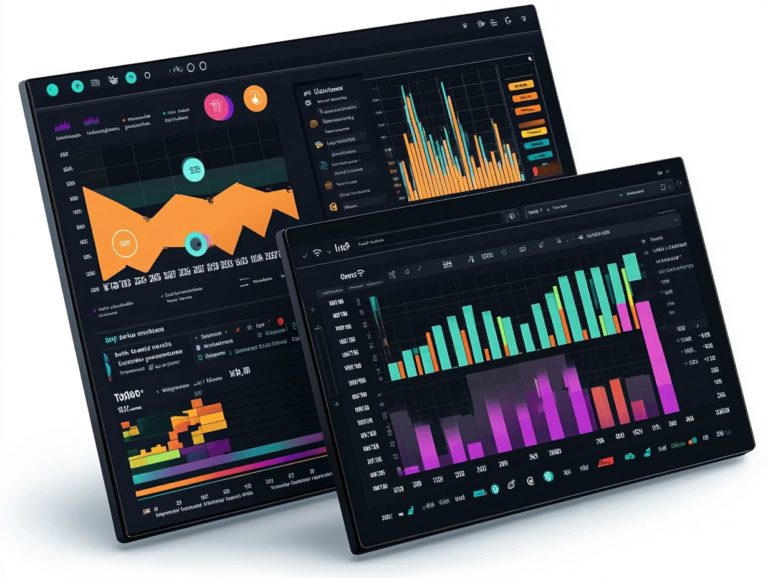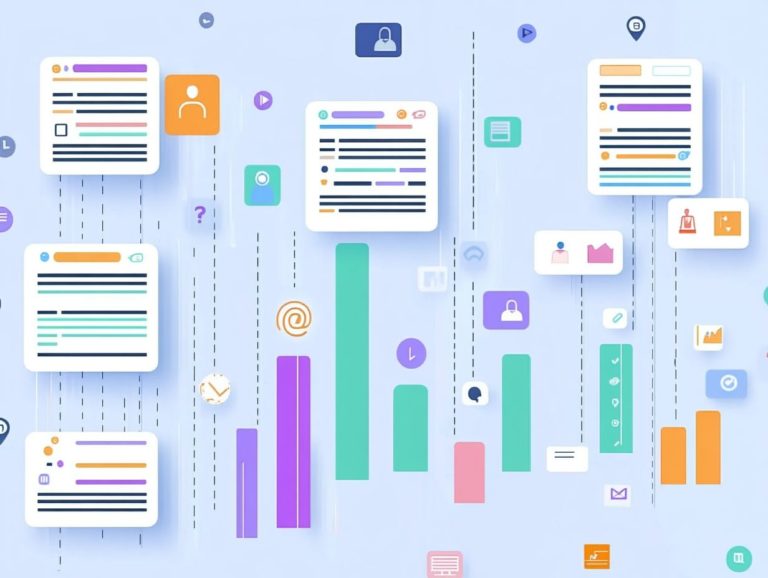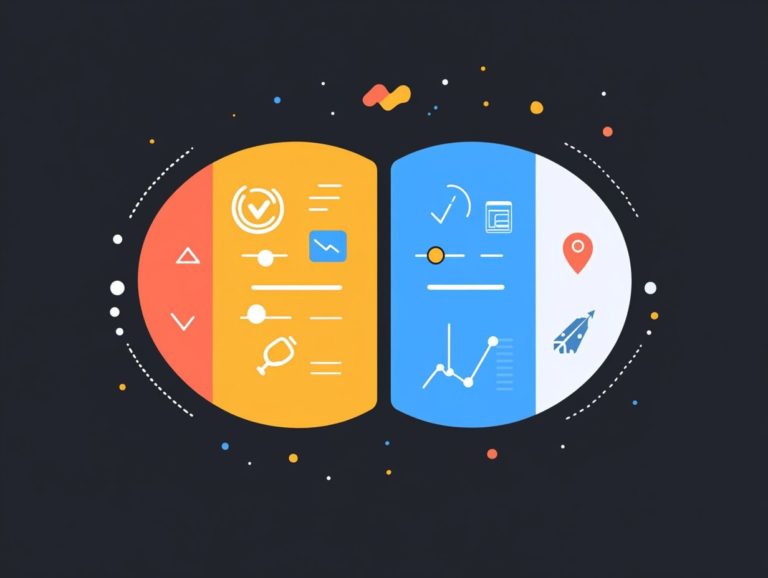Top 5 CRMs for Travel Agencies in 2024
In today s fast-paced travel industry, mastering customer relationships is essential for agencies looking to excel. You will discover how a CRM, or Customer Relationship Management system, helps businesses manage their interactions with customers.
This article showcases the top five CRM solutions specifically designed for travel agencies in 2024: Salesforce, Zoho CRM, HubSpot CRM, TravelWorks, and TravelContact. You ll gain insights into what a CRM is, why it matters, and how it can boost your efficiency and productivity.
Dive in and explore how the right CRM can revolutionize your travel agency!
Contents
- Key Takeaways:
- 1. Salesforce
- 2. Zoho CRM
- 3. HubSpot CRM
- 4. TravelWorks
- 5. TravelContact
- What Is a CRM and Why Is It Important for Travel Agencies?
- What Are the Key Features to Look for in a CRM for Travel Agencies?
- How Can a CRM Improve Efficiency and Productivity for a Travel Agency?
- What Are the Costs Associated with Implementing a CRM for a Travel Agency?
- What Are the Best Practices for Utilizing a CRM in the Travel Industry?
- How Can a Travel Agency Choose the Right CRM for Their Specific Needs?
- Challenges of Using a CRM in Your Travel Agency
- Get Ready for Incredible Changes in CRM Technology
- How Can a Travel Agency Successfully Implement and Integrate a CRM into Their Business?
- What Are the Real-Life Success Stories of Travel Agencies Using CRMs?
- Frequently Asked Questions
- Discover the Top 5 CRMs for Travel Agencies in 2024!
- Why is it important for travel agencies to use a CRM in 2024?
- What features should I look for in a CRM for my travel agency in 2024?
- How will using a CRM benefit my travel agency in 2024?
- Are there any budget-friendly options among the top 5 CRMs for travel agencies in 2024?
- How can I get started with implementing a CRM for my travel agency in 2024?
Key Takeaways:
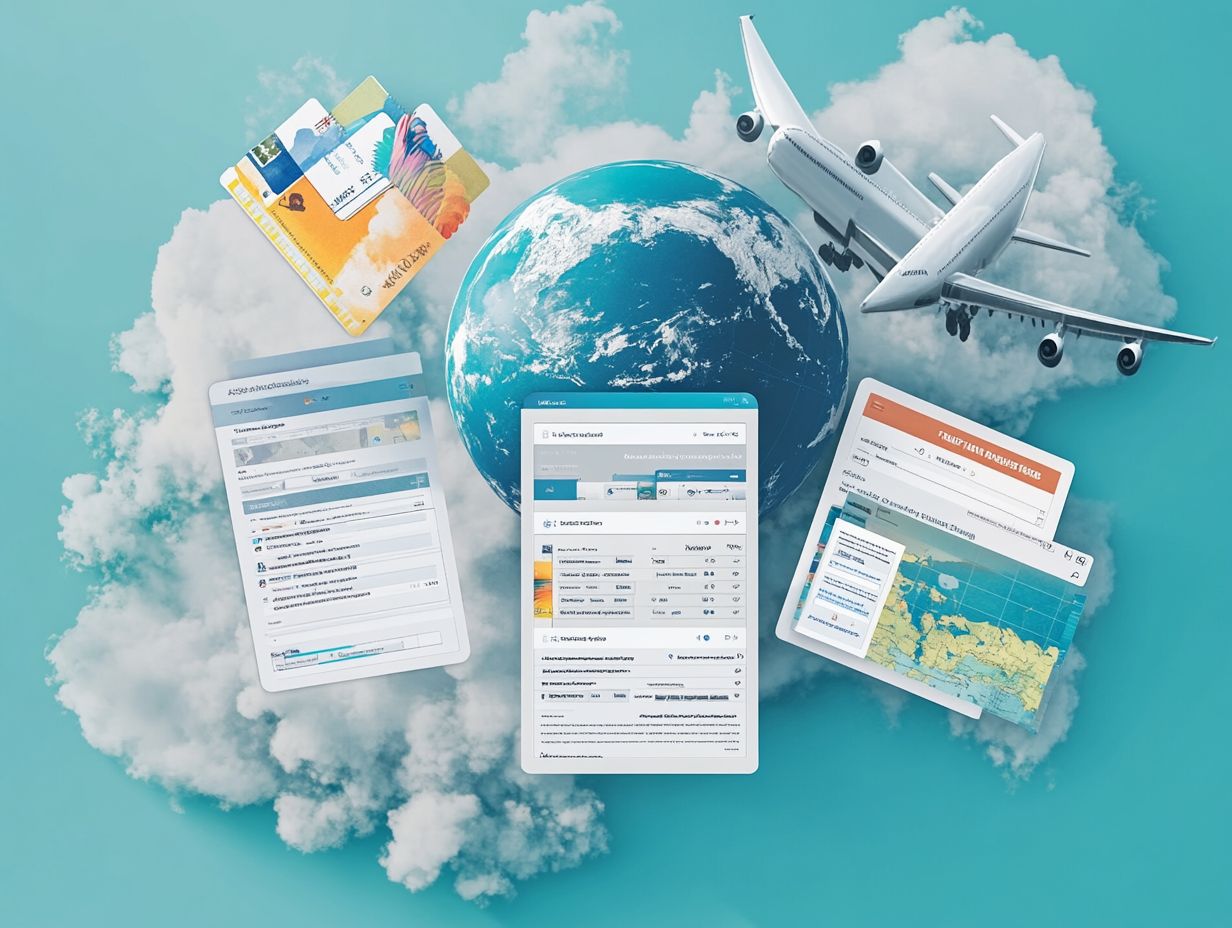
Salesforce, Zoho CRM, and HubSpot CRM are top CRMs for travel agencies in 2024. They offer key features such as lead management and data analysis. Implementing a CRM in a travel agency can improve efficiency and productivity while providing cost-effective solutions for managing customer relationships.
Travel agencies should consider their specific needs and potential challenges when choosing and implementing a CRM. Staying updated on future trends in the industry is also crucial.
1. Salesforce
Salesforce stands out as a premier CRM platform that gives travel agencies the power to elevate their customer management and unlock valuable insights into customer interactions. It helps streamline workflows while boosting revenue and customer satisfaction.
With advanced analytics tools, you can effortlessly track customer preferences and behaviors. This enables you to tailor offerings for truly personalized experiences.
The sales automation features foster seamless communication between your teams. This ensures that no lead goes unnoticed.
Comprehensive reporting capabilities allow you to analyze your performance and identify trends. You can make informed decisions based on real-time data. These functionalities help you enhance customer interactions. They also cultivate stronger relationships and build loyalty.
2. Zoho CRM
Zoho CRM offers a user-friendly interface complemented by robust features specifically designed for travel agencies. Its mobile accessibility and seamless integration capabilities elevate your management of customer profiles and interactions.
With mobile functionalities at your fingertips, you can effortlessly access critical client data while on the move. This ensures you seize every opportunity to engage with customers whether you’re at an airport or navigating a bustling trade show.
The platform s integration features give you the ability to connect with vital tools like booking systems and communication apps. This fosters a more cohesive workflow.
This interconnected approach aids in tracking customer preferences. It also enables you to deliver personalized communication, significantly improving satisfaction and loyalty.
By effectively harnessing these features, travel agencies can boost operational efficiency and cultivate deeper relationships with clients.
3. HubSpot CRM
HubSpot CRM is a critical communication tool for travel agencies. It is meticulously crafted to elevate your email marketing strategies and streamline lead management.
This platform has user-friendly features that allow you to capture leads with remarkable efficiency. You can nurture them through precisely targeted email campaigns.
By segmenting your audience based on interests and interactions, you can tailor your messages to resonate deeply with potential clients. The ability to track and analyze customer engagement allows you to refine your strategies.
Focusing on understanding client preferences and needs, HubSpot CRM serves as a vital resource in crafting personalized experiences that attract and retain customers.
4. TravelWorks
TravelWorks is a specialized CRM solution designed exclusively for travel agencies, offering tools that improve booking management and provide valuable customer insights. By streamlining your booking process, this platform gives you the power to manage reservations, modifications, and cancellations with remarkable efficiency.
This ensures that client-specific data is always at your fingertips. This feature helps you understand each traveler’s habits, deepening your understanding of your clientele. Personalized attention enriches the customer experience and fosters loyalty.
With the ability to anticipate needs and offer tailored recommendations, you can cultivate enduring relationships. Transform first-time visitors into loyal patrons who eagerly return for their next adventures.
5. TravelContact
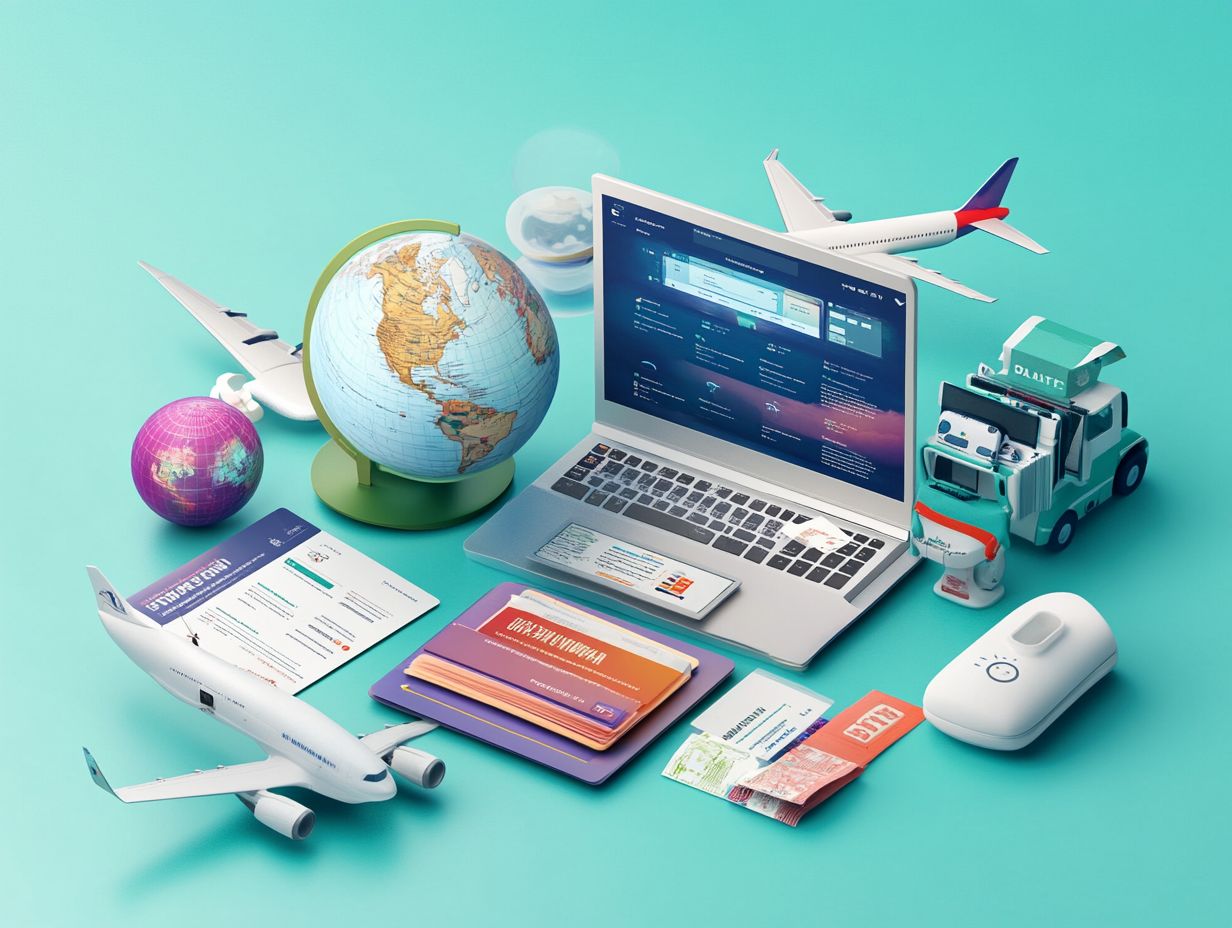
TravelContact is your go-to CRM platform tailored specifically for travel agencies. It boasts features that streamline vendor contacts and maintain a comprehensive communication history, which boosts your customer service and project management.
By efficiently organizing vendor information, it grants you easy access to crucial contacts, enabling quicker decision-making and fostering personalized interactions. The platform meticulously tracks your communication history, allowing you to revisit past conversations and reference previous deals.
This helps your operations run smoothly and strengthens your vendor relationships. Precise record-keeping enhances your workflow, giving you the power to deliver exceptional service and manage projects effectively while keeping your clients engaged and satisfied.
What Is a CRM and Why Is It Important for Travel Agencies?
A CRM, or Customer Relationship Management system, is an essential asset for travel agencies. It streamlines customer management, enhances communication, and enables data-driven decisions using collected data to guide your choices that elevate customer loyalty and satisfaction through tailored services.
In the dynamic realm of travel, where personal preferences and timely responses are paramount, the significance of a robust CRM only amplifies.
This system aids in tracking client information and booking history while automating communication, allowing for personalized messages and follow-ups that truly resonate.
Use insights from customer interactions to proactively meet their needs, offer tailored recommendations, and develop loyalty programs that genuinely connect with your clients. Ultimately, this fosters a superior experience for travelers, driving repeat business and generating positive referrals key ingredients for thriving in a fiercely competitive market.
What Are the Key Features to Look for in a CRM for Travel Agencies?
When selecting a CRM for your travel agency, it s crucial to prioritize key features such as automation capabilities, robust reporting functionalities, and the ability to manage comprehensive customer profiles.
These elements will streamline your workflows and elevate your interactions with clients. By incorporating automation, you ll minimize the time spent on repetitive tasks, allowing you to devote more energy to providing personalized customer service.
Meanwhile, advanced reporting features will offer you valuable insights into sales trends, customer preferences, and performance metrics, giving you the power to make data-driven decisions that enhance profitability.
Moreover, effective management of customer profiles enables you to gain a deeper understanding of your clients’ needs, resulting in tailored travel recommendations that significantly boost satisfaction and loyalty.
How Can a CRM Improve Efficiency and Productivity for a Travel Agency?
Implementing a CRM can significantly enhance your travel agency’s efficiency and productivity. It streamlines workflows, automates repetitive tasks, and offers valuable insights to improve decision-making and customer service.
By automating how you handle potential customers, you can focus on nurturing those who are most likely to convert. Tracking customer interactions allows you to personalize your service, ensuring each client feels valued and understood.
This approach fosters stronger relationships and encourages repeat business. The analytical features of a CRM empower you to generate insights that help identify trends and preferences.
Ultimately, these tools work together to allow your travel agency to operate smoothly while improving the customer experience.
What Are the Costs Associated with Implementing a CRM for a Travel Agency?
When you implement a CRM system, you’ll face various costs, such as software licensing, training, and ongoing support. These expenses can vary widely based on the features required by your travel agency.
Carefully assess your specific needs. A basic package may seem budget-friendly upfront, but it could lead to higher costs later if you need more features.
Don t forget the costs of moving information from your existing systems and customizing the software to fit your unique workflows. These are essential factors when shaping your overall budget.
As your agency grows, consider scalability. Relying on inefficient tools may force you to switch platforms, resulting in additional costs. Thoughtful planning can help you avoid unexpected expenses.
What Are the Best Practices for Utilizing a CRM in the Travel Industry?
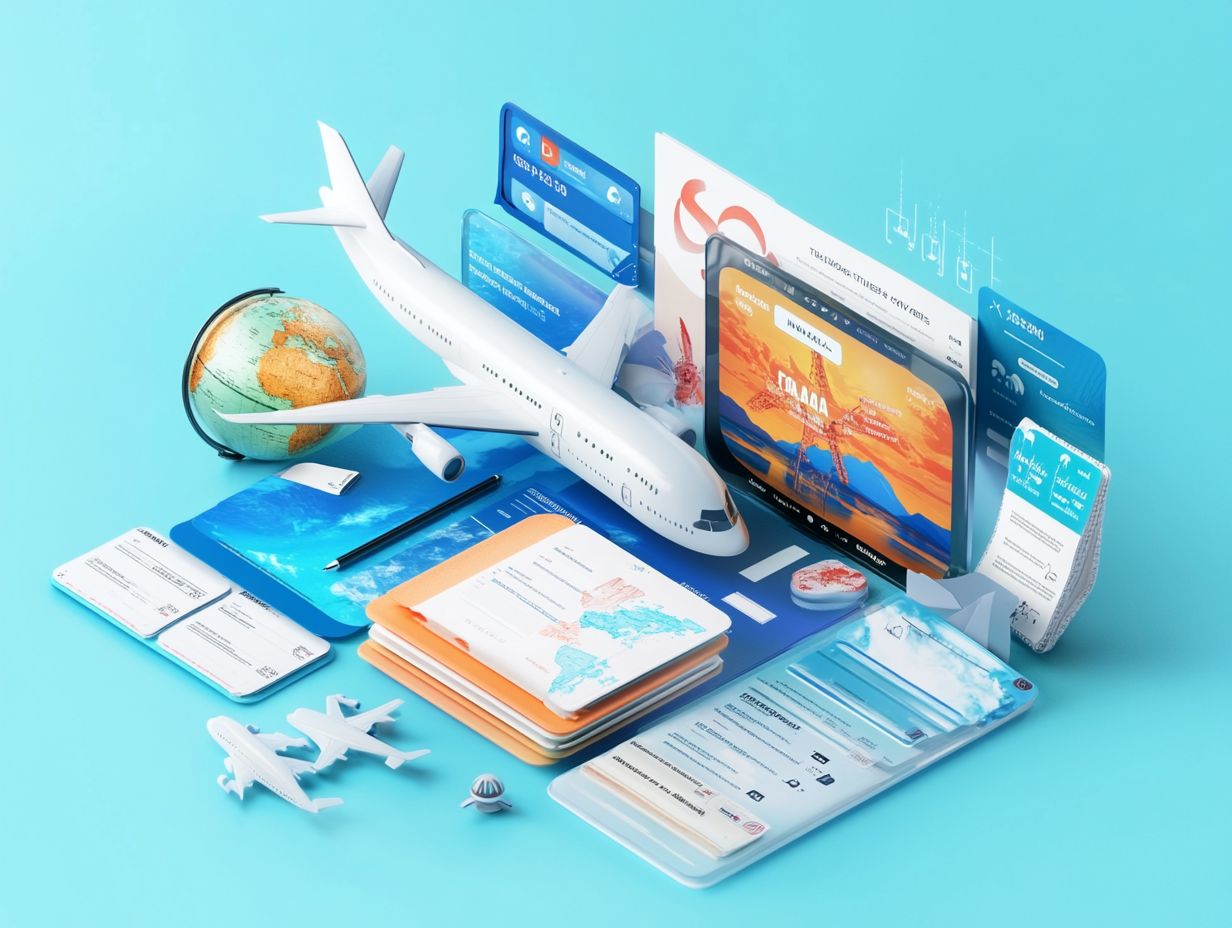
To truly harness the power of a CRM in the travel industry, embrace best practices like routinely updating customer profiles and keeping a meticulous record of communication history. Use the CRM as your central hub for enhancing customer interactions.
Data accuracy is crucial. Having precise information allows you to provide personalized services that can significantly boost customer loyalty.
Regular training sessions for your staff are essential. These sessions familiarize everyone with the system and empower your team to utilize its features effectively.
Integrating your CRM with other tools, like booking engines and email marketing platforms, streamlines your workflows. This integration enhances your service delivery and customer satisfaction.
How Can a Travel Agency Choose the Right CRM for Their Specific Needs?
Choosing the right CRM requires careful assessment of your agency’s specific needs and evaluation of user-friendly options. Ensure the CRM integrates well with your existing tools to meet your operational requirements.
Focus on features that enhance customer management, such as automated communication tools and customizable reporting. These elements can streamline workflows and elevate customer interactions.
Look for solutions that offer mobile access. Empowering your team to manage client relationships on the go is essential.
The ideal CRM should align with your operational goals and help build long-lasting client relationships. This investment is critical for your agency’s future success.
Challenges of Using a CRM in Your Travel Agency
While a CRM can provide substantial advantages, you might face challenges such as data migration issues, user adoption hurdles, and limitations in customization that could affect your customer service and operational efficiency.
To effectively navigate these complexities, start by crafting a comprehensive migration plan that clearly describes the transfer of customer information from legacy systems, ensuring data integrity throughout the process.
Fostering a culture of user engagement is essential. Offering thorough training sessions and ongoing support will enhance familiarity with the CRM tools. Explore flexible CRM solutions that allow for tailored features, giving you the power to meet specific business needs while maximizing your operational potential.
By proactively addressing these obstacles, you can fully leverage the capabilities of your CRM system to elevate your overall service delivery.
Get Ready for Incredible Changes in CRM Technology
The future of CRM in the travel industry is set for a remarkable transformation. You ll witness trends like enhanced automation, improved personalization, and a sharper focus on understanding customer preferences all aimed at elevating travel experiences.
Travel companies are increasingly embracing artificial intelligence and machine learning to sift through vast datasets. This gives you the power to predict your needs and tailor offers just for you. This shift not only enriches your journey but also boosts satisfaction rates as organizations become more agile in responding to your real-time feedback.
Integrating CRM systems with social media platforms facilitates seamless interactions and community engagement, making it easier for you to connect with travel brands. As these technologies advance, organizations will uncover new avenues for service innovation and revenue streams, ultimately reshaping how they engage with you, their valued clientele.
How Can a Travel Agency Successfully Implement and Integrate a CRM into Their Business?
Successfully implementing and integrating a CRM into your travel agency’s operations requires a strategic approach that includes thorough training, careful data migration planning, and alignment with your existing project management workflows and customer history tracking.
Start this process by ensuring that your staff participates in comprehensive training sessions. These sessions should not only familiarize them with the CRM system’s features but also highlight how it can significantly enhance customer relationships.
Once training is complete, establish a well-organized data migration strategy to guarantee that your existing client information is transferred accurately and without loss. The CRM you choose must fit seamlessly into your operational framework, allowing you to manage bookings, inquiries, and follow-ups more efficiently.
This integration will ultimately lead to enhanced customer satisfaction and loyalty, setting your agency apart in a competitive landscape.
What Are the Real-Life Success Stories of Travel Agencies Using CRMs?
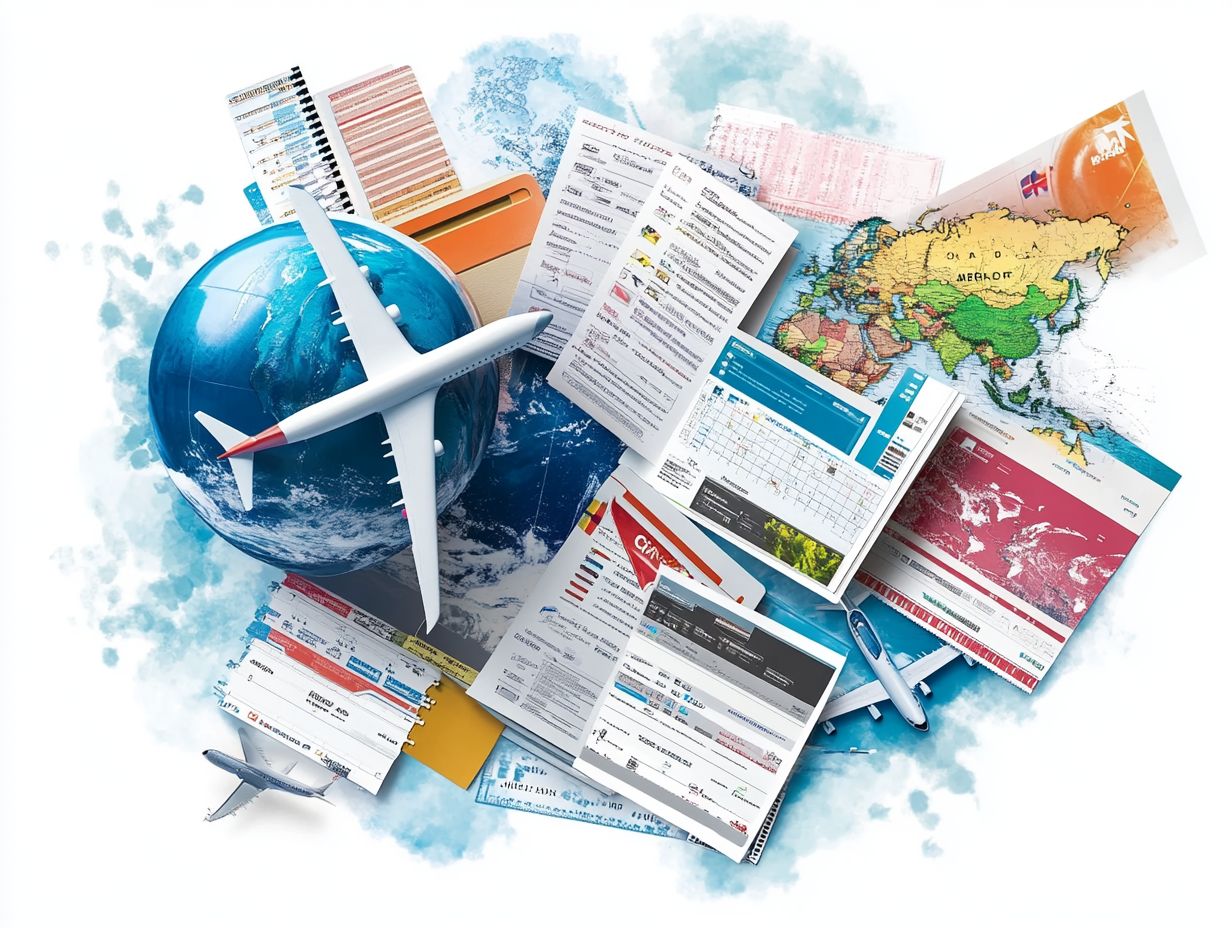
Real-life success stories of travel agencies employing CRMs reveal the transformative impact these systems have on customer interactions, revenue enhancement, and overall operational efficiency through adept data management and analytics.
Take, for instance, a leading agency in Europe that embraced a CRM capable of integrating customer preferences and travel history. This strategic move resulted in a remarkable 30% increase in repeat bookings within just six months.
In the U.S., another travel company harnessed CRM analytics to refine its marketing strategies, achieving an impressive 25% increase in sales during peak seasons.
By streamlining their processes, these agencies elevated customer satisfaction and reduced response times to inquiries, ensuring that clients felt valued and well cared for throughout their journeys.
Frequently Asked Questions
Discover the Top 5 CRMs for Travel Agencies in 2024!
The top 5 CRMs for travel agencies in 2024 are Salesforce, HubSpot, Zoho CRM, Odoo, and TravelWorks. For those interested in affiliate marketing as well, you might want to explore the top CRMs for affiliate marketing in 2024, as these platforms have been chosen based on their features, user reviews, and predicted performance in their respective industries.
In conclusion, implementing a CRM system can significantly enhance your travel agency’s efficiency and customer satisfaction. By addressing potential challenges and embracing future trends, you position your agency for success in a competitive market.
Why is it important for travel agencies to use a CRM in 2024?
The travel industry will be more competitive than ever in 2024. To stand out, travel agencies must use a CRM to manage customer data and enhance communication.
A CRM also helps create personalized travel packages and improves overall customer service.
What features should I look for in a CRM for my travel agency in 2024?
Choosing the right CRM for your travel agency can be a game-changer! Important features include lead and contact management, communication tools like email and social media integration, task and project management, and reporting and analytics.
It’s also beneficial to select a CRM with industry-specific features tailored to the travel sector.
How will using a CRM benefit my travel agency in 2024?
Using a CRM can provide numerous benefits for your travel agency in 2024. It can boost efficiency and productivity while improving customer service and retention.
A CRM offers valuable insights and data to help you make informed business decisions. It also saves time and money by automating tasks and processes.
Are there any budget-friendly options among the top 5 CRMs for travel agencies in 2024?
Yes, there are budget-friendly options among the top 5 CRMs for travel agencies in 2024. Zoho CRM and Odoo both offer affordable pricing plans for small businesses and startups.
Additionally, HubSpot provides a free version, making it an excellent choice for those on a tight budget.
How can I get started with implementing a CRM for my travel agency in 2024?
To get started with implementing a CRM for your travel agency in 2024, first identify your business needs and goals. Then, research and compare different CRM options to find the best fit for your agency.
Finally, partner with the CRM provider to set up and customize the platform to meet your specific needs. Training your team on how to use it effectively is crucial to ensuring success.

